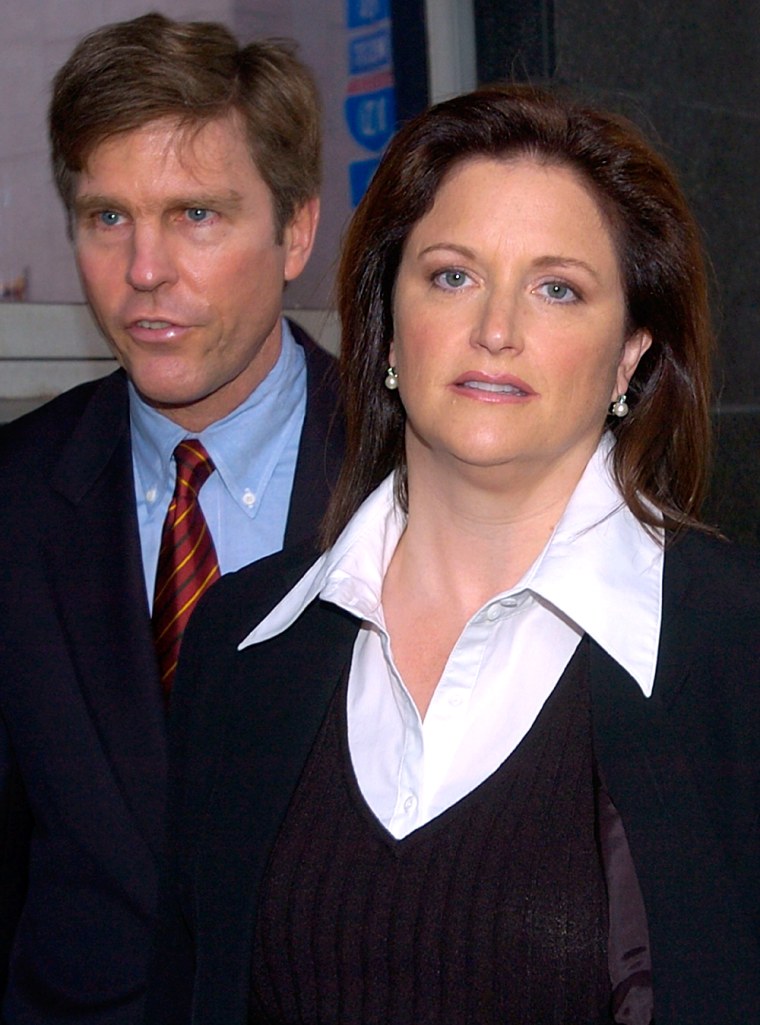The wife of former Enron Corp. finance chief Andrew Fastow pleaded guilty Thursday to helping her husband hide ill-gotten income from some of his myriad financial schemes and was sentenced to the maximum of one year in prison.
U.S. District Judge David Hittner turned aside pleas to give Lea Fastow only a few months in prison on the misdemeanor conviction of filing a false tax form. The plea came after months of legal wrangling.
Hittner gave her no fine but placed her on a year of supervised release once the sentence is completed.
“I’ve made errors in judgment I will always regret for the rest of my life,” she told the judge. “But I can’t undo the past. I am only able to do what is right now.”
Enron imploded into bankruptcy in late 2001 amid a series of questionable financial transactions. The collapse cost thousands their jobs and erased the investments of thousands more who owned its stock. Lea Fastow, 42, was a former assistant treasurer there, but the case against her solely involved her role in her and her husband’s tax filings.
Both prosecutors and defense lawyers urged the judge on Thursday to show leniency and limit Lea Fastow’s prison stay to five months, with another five months of home confinement, to minimize her time away from the Fastows’ two young children.
Instead, the judge gave her the full 12 months in prison.
Several of Lea Fastow’s supporters in the courtroom wept as she was sentenced. She began crying after Hittner left the courtroom. She remains free until she’s given a date to report to a federal prison.
In January, Lea Fastow pleaded guilty to a felony tax crime, admitting to disguising shady income as gifts and hiding them from the couple’s accountant and the government.
But Hittner rejected that plea deal last month because it would have bound him to impose a sentence agreed upon by her lawyers and prosecutors — five months in prison and five months confined at home.
Hittner’s decision left Lea Fastow with the choice of accepting whatever sentence he deemed appropriate within a range of 10 to 16 months, or withdrawing her guilty plea. She withdrew her plea, and the judge scheduled a June 2 trial on her six original felony charges — four counts of filing false tax forms and two counts of conspiracy.
Last week, prosecutors wiped out those previous counts, replacing them with the single misdemeanor charge. Since misdemeanor sentences are capped at one year, Hittner only could consider a sentence of 10 to 12 months. The judge also could have split any sentence between prison time and home confinement.
Hittner acknowledged receiving 50 to 60 letters on Lea Fastow’s behalf, which he described as an extremely large outpouring of support. He cited one of them that asked him to be lenient because of her family’s reputation for contributing to charities over the years in Houston. The judge noted he wasn’t sentencing her grandfather.
Lea Fastow’s attorneys asked Hittner to recommend she serve her time at a minimum-security women’s federal prison in Bryan, which houses 940 inmates about 90 miles northwest of Houston. It’s one of two minimum-security federal prisons for women in Texas. The other is in Fort Worth.
Her plea was part of a deal that included a plea agreement for her husband.
Andrew Fastow pleaded guilty in January to two counts of conspiracy, admitting to running widespread schemes and partnerships to make Enron appear financially healthy while enriching himself at the company’s expense on the side.
He also agreed to hand over nearly $24 million in cash and property, serve the maximum 10-year prison sentence on two counts of conspiracy and help prosecutors pursue other cases. His help led to subsequent indictments of former Enron CEO Jeffrey Skilling and former Enron top accountant Richard Causey.
Prosecutors didn’t need Lea Fastow’s cooperation, but supported a 10-month sentence split between prison and home confinement because they said she played an “integral role” in securing her husband’s guilty plea and cooperation more than a year after he initially was indicted.
